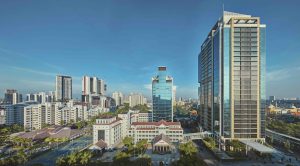Property flipping: For better or worse?
Share story

Property flipping is an act of buying properties in bulk below market price, causing supply-demand discrepancy in real estate and selling the units twice the numbers from its original price.
Property flipping has always been in a bad side of the coin when it started to sprout in mid-2000. It recently has become more acceptable these days and even celebrated as the public become aware of a story of a 31-year-old mother of three who bragged in a social media in November last year about owning six properties in the range of seven years despite only earning RM2,500 a month.
However, her so-called success of her property flipping caused quite a havoc among Malaysian internet community since she profited a large sum of money by renting out a state-subsidised Rumah Selangorku which meant strictly for families and not for property speculators.
As reported recently by The Malay Mail, property flipping was only limited to wealthy individuals or government-linked funds in its early years but for the past five years, it has surpassed the line of the riches into the middle or even lower income earners.
What caused the property flipping?
Property experts figure out poor policies of property management, oversight in regulation and easy credit propel the new wave of greedy speculators that take advantages of all income class to flood the market by manipulating the supply-demand in real estate.
Speaking to The Malay Mail, president of Association of Valuers, Property Managers, Estate Agents and Property Consultants (PEPS) Foo Gee Jen said the establishment of property investors clubs (PICs) are giving a bad name for the country’s housing market today.
PICs beat the system by generating artificial demand in purchasing collective properties with discounts of up to a fourth below market price without deposits and creating supply shortages of properties through a practice namely as “hogging”.
Yay or nay to property flipping?
Despite the flak received from property flipping, National Housing Department (NHD) released a statement in January 2014 stated that the clubs have not breached any laws.
So far, there is no issue for these speculators to get involved in property flipping. In fact, Foo claimed majority of new real estate agents who joined the market between 2010 to 2014 were first-time home buyers.
The speculated transaction value at the rise of property flipping era was estimated to be half of total transactions during the first half of the 2016, total value of unsold units was at just over RM8 billion.
According to Foo, the number doubled to more than RM20 billion in the same period of this year.
While PICs are free to practice property flipping, some of the strict measures set by Putrajaya may have bore fruit to curb excessive speculation and the sudden uptick for real estate speculation may go out of a hand in which Foo suggested that property flipping is gone.


